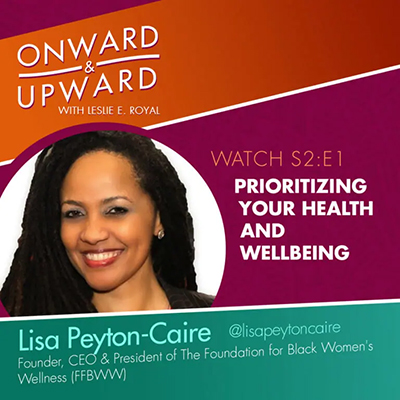Is This Surgery Right for Me?
Having practiced obstetrics and gynecology for over fifteen years, I have learned much about a woman’s quest for health. And I’ve had countless hours of discussion with patients facing one of life’s toughest questions: “Do I truly need this surgery?” But I have learned that the answer does not solely lie with the surgeon. Rather you must make the final judgment call. So, let’s take a look at some of the questions to consider in tackling this decision.
1. Is this problem immediately life-threatening?
Problems that allow you to wait for an office appointment as opposed to visiting an emergency department are rarely immediately life-threatening. But if faced with this decision in an emergency room, you will need to process and make a decision urgently. While the pace may be more hurried, the process remains the same. When faced with life-threatening emergencies such as a ruptured appendix or an aneurysmal bleed, surgery becomes a life-saving tool. It is prudent to take full advantage of surgical options for management to increase your chance of survival.
2. Does this problem pose a threat to my life expectancy?
Ok, you are lucky. You do not have an immediately life-threatening problem. Does this mean surgery becomes less valuable? No. Even if the problem does not pose an immediate risk to your health, you must still consider whether this threatens your life expectancy. Will this issue slowly chip away at your health and reduce your years of longevity? What are the risks of inaction? For instance, a diagnosis of abnormal uterine bleeding is very common. A slew of varied diagnoses may be responsible. Surgery may be recommended as part of your diagnostic evaluation or treatment. If you choose to “just live with it,” instead of addressing the root cause of the problem, you may be allowing a small issue to morph into something more complex. Complex medical problems require more involved treatment. More involved treatment carries more risk. Failure to take action can reduce your life expectancy by nature of the problem becoming more problematic or the treatment posing more risk or both. It is essential to address your medical issues and make a management decision.
3. Is there a threat to my livelihood or life’s quality?
When deciding on travel or social gatherings, do you worry that your symptoms will occur while out? Will living with this problem force you to miss out on activities you enjoy? Will you be able to continue in your profession, unhindered? Medical issues that interfere with your attendance or performance at school, work, or play are just as concerning as those threatening your life expectancy. A reduction in your quality of life is as important as a reduction in your years of life. It may be time to take action.
4. What are my surgical alternatives?
Are you able to achieve your objective(s) without surgery? What are your surgical alternatives? Can any of these alternatives allow you to reach your goal? In other words, are there less drastic alternatives that will accomplish the same goal? The key to consider here is, what are your goals? The purpose of treatment is to obtain results that will satisfy your personal goal. The goal will vary for each individual. Some may desire complete resolution of symptoms. Others may be satisfied, or dare I say happy, with a simple reduction in symptoms. Symptom reduction, to a level of personal tolerance that allows you to function, may be your success measure. While non-surgical options may only achieve a fraction of the results gained from surgery, this may be sufficient for you. If, however, your goal is complete relief, surgery may be your best option.
5. What are my surgical risks?
All surgeries carry the risk of bleeding, infection, and damage to nearby structures. These are general risks for all patients undergoing surgery. Your surgeon will outline the risks specific to you. You may have unique qualities that increase or minimize certain risks? Your surgeon will counsel you on what her concerns are for your particular case.
6. When should my surgery be performed?
The timing of surgery is just as important a question as should I have surgery. Life-threatening emergency surgeries are performed almost immediately. You will not have much time to reflect and contemplate all your options. There is minimal latitude in timing, in cases of genuine medical emergencies. Non-emergency operations, however, will allow you the luxury of planning your surgery to suit your schedule. Your surgeon will counsel you on the recommended timeline. It is best to have your surgery performed at the earliest time you can. Do not procrastinate. With prolonged waiting, you face the added risk of disease progression, which would increase your risk of surgery. The truth of the matter is that we all face a risk of worsening health each day. Should you experience a new medical event or diagnosis before surgery, you may no longer be eligible for surgery. Surgery may become too risky if you aren’t healthy enough to undergo one. Once you have decided on surgery, get it done in a timely fashion, don’t wait.
7. Will my surgery work?
The final question to consider is, will the surgery achieve your desired results? Will you get the answers you are looking for or the relief of symptoms you want? While surgical results can never be guaranteed, your surgeon will be able to share her degree of confidence that the procedure will achieve your desired benefit. Together, you and your surgeon will determine what is most suitable for you. Your surgeon will provide counseling regarding reasonable post-surgical expectations. Together, you will establish a management plan that satisfies you both.
Dr. Mohammed is an ob/gyn physician who has been practicing for over fifteen years. She provides care for the full scope of obstetrics and gynecological problems.
Decca Mohammed, MD
Empire Medical Associates
50 Newark Avenue, Ste 205, Belleville, NJ 070109


